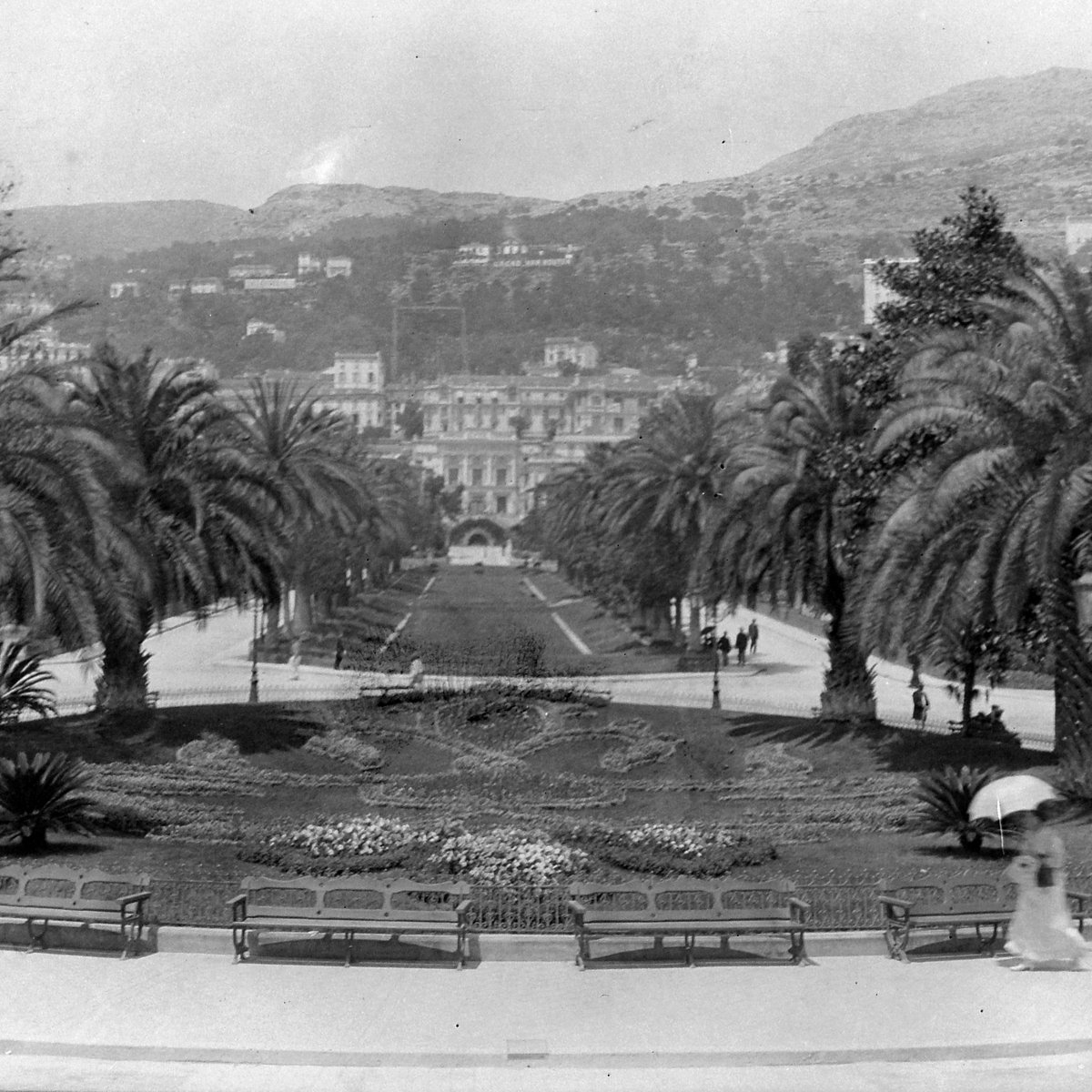🅿🆄🅱🅻🅸🅲🅰🆃🅸🅾🅽 🅳🅰🆈!!!🙌👏🙌
To celebrate, a bumper thread about the genius at the centre of my book. RT ░N░O░W░ to spread the word... and for a chance to WIN a signed copy (yes, I’ll post abroad if I need to) 1/
penguin.co.uk/books/313705/t…
To celebrate, a bumper thread about the genius at the centre of my book. RT ░N░O░W░ to spread the word... and for a chance to WIN a signed copy (yes, I’ll post abroad if I need to) 1/
penguin.co.uk/books/313705/t…
This is the story of the 20th century’s foremost forgotten intellectual, a man who was in his day as well-known as Einstein—and considered smarter. Sixty-five years after his death, the impact of von Neumann’s ideas on contemporary life are...without parallel 2/ 
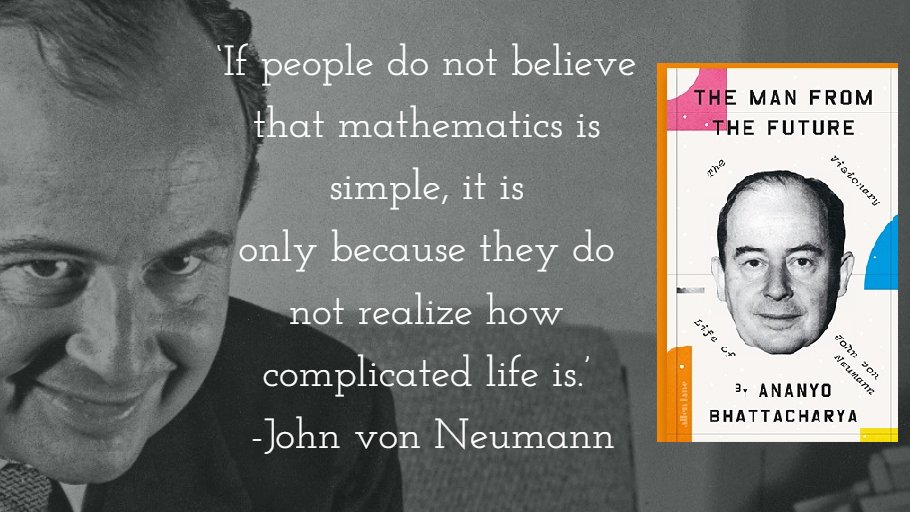
What did von Neumann do? His contributions to pure maths would fill several books and I’ve touched on some (eg. ergodic theorem, von Neumann algebras). But ‘The Man from the Future’ is really about unpicking one mathematician’s incredible impact on our lives today 3/ 

Let’s start with quantum mechanics. Von Neumann arrived in Göttingen in 1926, aged 22, and reconciled Heisenberg’s ‘matrix mechanics’ with Schrödinger’s ‘wave mechanics’. He later came up with the first mathematically rigorous – and highly influential - formulation of QM 4/ 
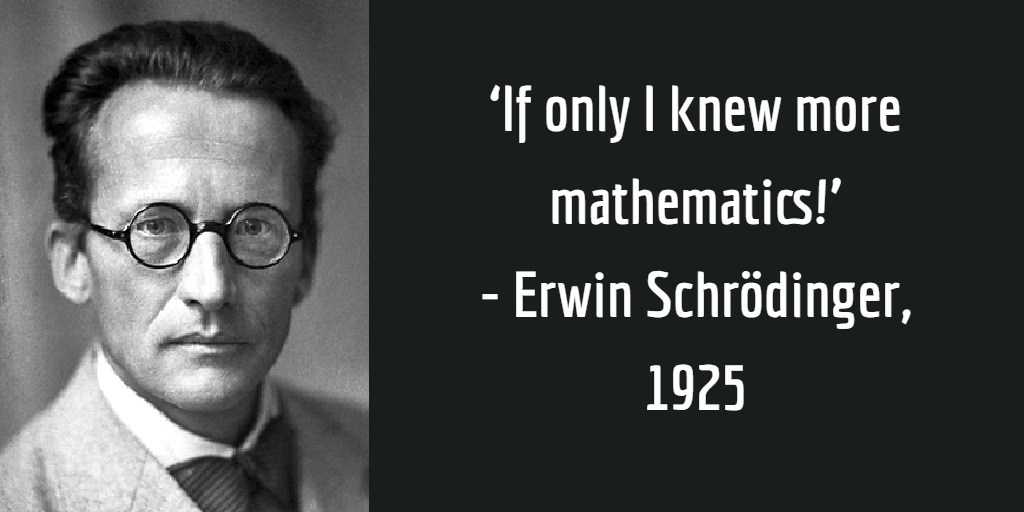
In 1933 von Neumann joined the new Institute for Advanced Study in Princeton, with Einstein. He was the youngest hire. After a stint of military research and a secret mission to England, Oppenheimer recruits him to the atom bomb project in July 1943 5/ 
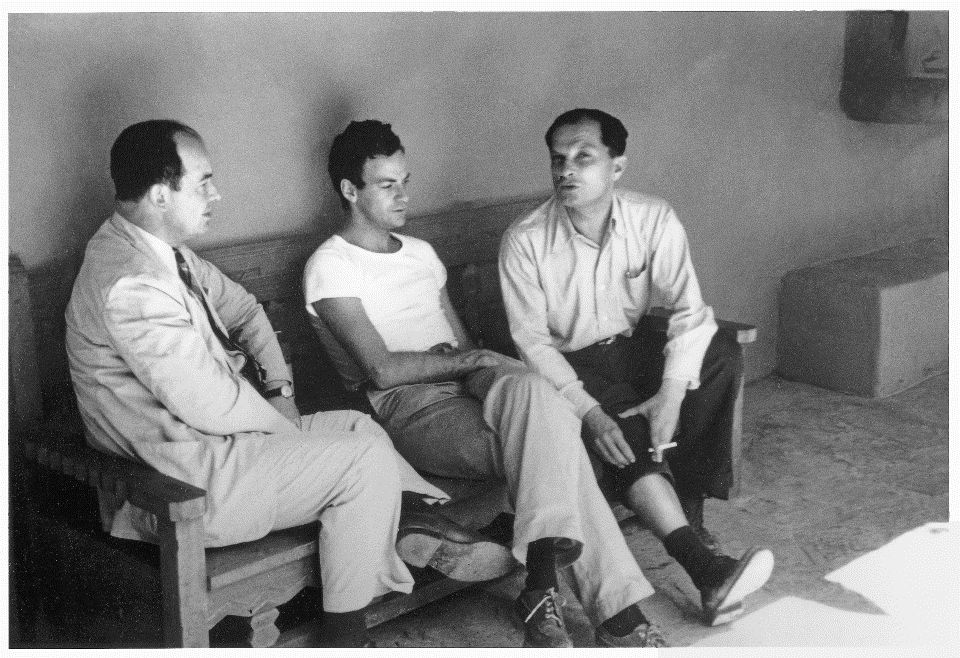
At Los Alamos, von Neumann kicked plans for an ‘implosion bomb’ into high gear. He was instrumental in the design of the ‘Trinity’ device and ‘Fat Man’, which was detonated over Nagasaki, and chaired the committee charged with choosing targets for the US atom bombs 6/ 
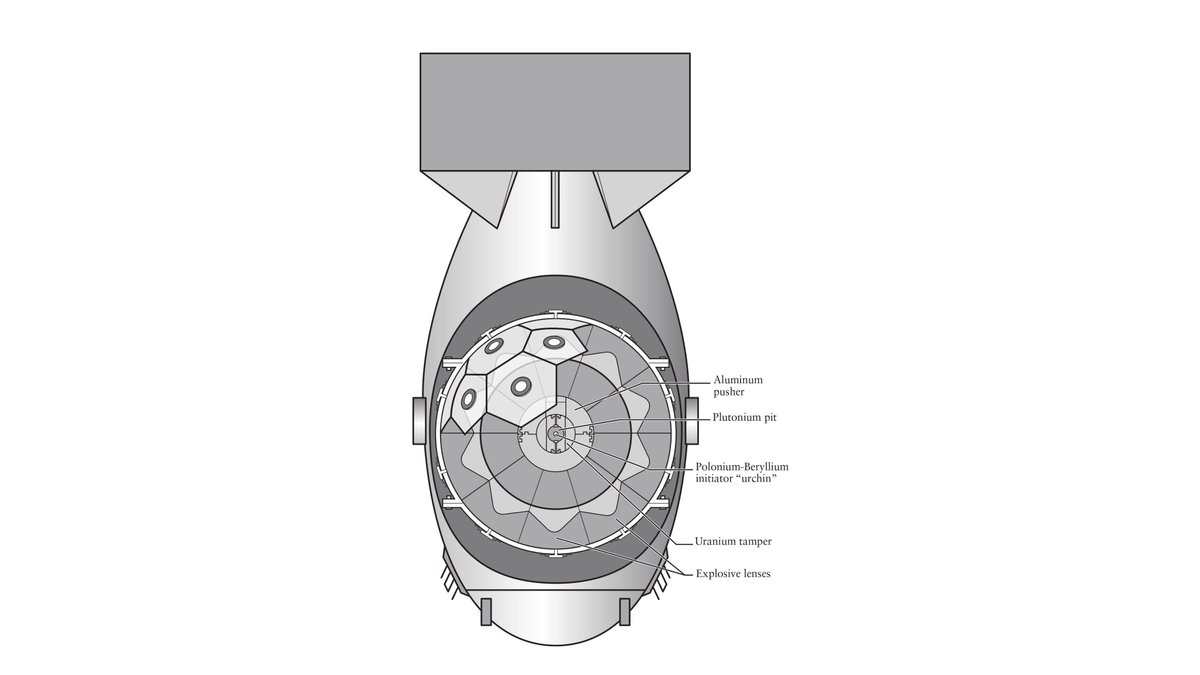
After the war, von Neumann criss-crossed the US in search of more computational power for bomb-related calculations. He joined the ENIAC project, and in 1945, produced the EDVAC report, the blueprint for the modern stored-program computer--from smart phone to desktop 7/ 

This is Klári Dan, von Neumann’s second wife, and the most overlooked woman in computer history. Her bomb simulations were the first truly useful, complex modern programs ever to have been executed 8/ 

What else? How about von Neumann as forefather of the open source movement? Every progress report he produced for his own computer project at the IAS was published and circulated—and spawned the first generation of truly modern computers 9/
Next, game theory. Von Neumann founded the field in 1928, with his proof of the minimax theorem. While helping design the bomb, he was writing the field’s canonical text, 𝑇ℎ𝑒𝑜𝑟𝑦 𝑜𝑓 𝐺𝑎𝑚𝑒𝑠 𝑎𝑛𝑑 𝐸𝑐𝑜𝑛𝑜𝑚𝑖𝑐 𝐵𝑒ℎ𝑎𝑣𝑖𝑜𝑟, with economist Oskar Morgenstern 10/ 

Game theorists have garnered a trove of Nobel prizes in economics recently but its first application was to nuclear deterrence during the Cold War. Much of this work was carried out at the RAND Corporation, a Californian think-tank where ‘von Neumann was king’ 11/ 

Von Neumann helped usher in the age of the intercontinental ballistic missile and famously supported a pre-emptive nuclear strike—for a while (so did pacifist Bertrand Russell). He’d abandoned this position by 1954—just as ‘Massive Retaliation’ became official US policy /12 

In 1948 von Neumann unveiled his theory of self-reproducing automata-the first proof that machines could spawn more machines—and evolve. Automata theory inspired a whole bunch of ideas: molecular assemblers, self-building moon bases, theories of everything, artificial life... /13
Next, von Neumann’s unfinished lectures, published as ‘The Computer and the Brain’ after his death. Von Neumann’s lasting insight was that brains are massively parallel, not serial like the computers he helped invent /14
Finally, von Neumann’s dire warning to humanity, June 1955’s essay in Fortune magazine, ‘Can We Survive Technology?’ Acutely aware of the possibilities, fully alive to the dangers, the essay’s as prescient as you’d expect if he really was ‘The Man from the Future’ /15 

The book’s available now from the usual places! Order now and order often! You won’t regret it. Don’t believe me? Why, then read the super review by the brilliant @lfspinney for @TheEconomist -- hot of the press today! Thanks! economist.com/books-and-arts… 16/
• • •
Missing some Tweet in this thread? You can try to
force a refresh












